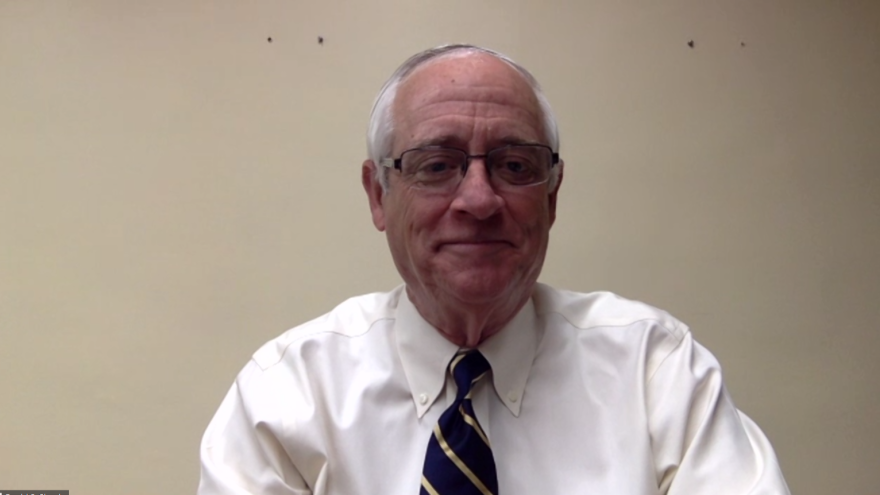The interim superintendent of schools in Grand Ledge says he thinks the importance of public schools has never been as pronounced as it is right now.
Dave Chapin was brought in by the Grand Ledge Board of Education last week following their decision to place superintendent Brian Metcalf on administrative leave for making online comments about the death of George Floyd that were seen by many as victim-blaming.
Chapin is on the College of Education faculty at Michigan State University. He was superintendent in East Lansing for nine years.
Chapin says the uproar over racism in the district, coupled with dealing with COVID-19, make the funding of schools, and the need to value teachers and administrators who want to “do the right thing,” crucial. “Our classrooms bring people together," Chapin states. "They give all of our students, and all of our citizenry for that matter, equal access to teaching and learning.”
The Grand Ledge school board meeting on June 22nd will include a public hearing on the budget for the coming school year.
Chapin sees the issues of racism and the COVID-19 pandemic as being big challenges for public schools, adding "we need to fund our schools, we need to value our schools, and we need to appreciate the teachers and our administrators, our board members who are wanting to do the right thing.”
FULL TRANSCRIPT:
SCOTT POHL: In those nine years, how would you describe the racial makeup of East Lansing schools, and what sort of race related challenges did you face during those years?
DAVE CHAPIN: I think we were about 70, 75-percent white Caucasian, and roughly about 20% African-American, students of color, Hispanic in addition to that as well, so were about 75-percent Caucasian, much different than the 98-percent, 99-percent when I was a student at East Lansing High School in the late 60s, early 70s.
You ask also about the incidents that we faced. We did have incidents that were connected to race. As I've had a chance to work with my colleagues at Michigan State and honestly work with schools around the state, I've had an opportunity to reflect and think and look back on some of our experiences in East Lansing and probably, I’d say it’s safe to say I look back at those experiences differently than I did when I was in the moment for sure. I honestly believe we elevated the voice of the African American community. We had a black student union, a parent group representing our black community, and that voice became stronger.
POHL: It's been just over a week now and I'd like to ask you what, if anything, you've already done to address the racial tension in Grand Ledge schools?
CHAPIN: Well, I can't say that I've really done anything other than to have a really good meeting with my central office staff. I will say this, though: I have heard from an inordinate amount of people reach out to me and say, Dave, we want to help. This includes some of our really top tier professors at Michigan State who have lots of experience. I haven't even met with my school board in their entirety yet, so for me to come in without listening first and really understanding is inappropriate for me to come in with a lot of ideas. That's not my style. I'm going to listen carefully. I'm going to try to do my best and I'll access my resources and my experience at the right time.
As you know, we don't know about our finances, that's taking some time. We don't know about our return to school, that's taking some time. We don't know about our bond issue is developing. So as you can imagine, there's a there's a lot of irons in the fire, but we talk about race and we talk about systemic racism. That will be front and center. I plan on facilitating, at the same time leading, at the same time missing our public school classrooms as we've known them in the past and an opportunity to work and meet with people in person.
POHL: Dave, how do you think you'll gauge success?
CHAPIN: I was brought into this issue because of the racism that was brought forward and the gut punch that the school board and the community felt. The board president, Denise (DuFort) shared with me, she said, Dave, we need someone that has some experience with finance, someone that has experience with a bond issue, and someone that has experienced with equity issues, and we believe you have all three. I do have all three of those experiences, but I'm also a work in progress. I think we're all a work in progress, and we have to consider ourselves a work in progress. So, I measure success by our faculty, our students, our community saying we're a little bit further down the road and we better understand who we are and how we can move forward.






